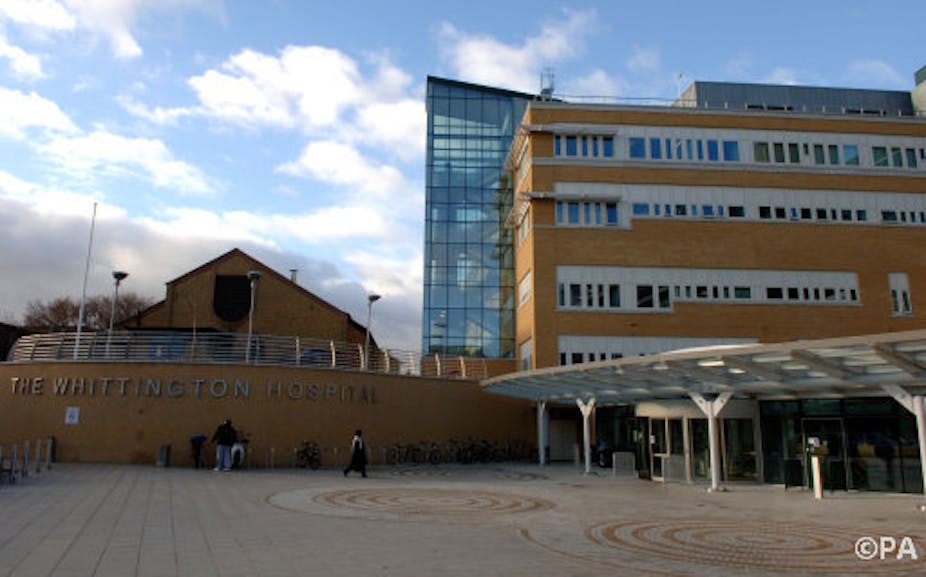On 21 March, the Crown Prosecution Service announced the first prosecution of a person accused of female genital mutilation (FGM) in the UK. Dr Dhanuson Dharmasena, a doctor at the Whittington Hospital in London, will be prosecuted under Section 1(1) of the Female Genital Mutilation Act (2003).
Dr Dharmasena is accused of re-stitching a women’s vagina at her request after she gave birth. The nature of this prosecution has widely been discussed and criticised – but the significance of the announcement’s timing seems to have been overlooked.
The United Nations special rapporteur on violence against women, Rashida Manjoo, began an official visit to the UK on 31 March. Her visit came on the back of a highly critical report, published by the UN Committee on the Elimination of Discrimination Against Women (CEDAW) in July 2013, which highlighted the UK’s failure to progress on many issues pertaining to violence against women.
Accordingly, the government wants to demonstrate that it’s taking violence against women seriously, and implementing strategies that will initiate real change. FGM laws have existed in this country since 1985, yet this first prosecution was only announced last month. The announcement was made by the director of public prosecutions, guaranteeing it significant media attention. Tellingly, the event occurred just ten days before the UN expert’s visit – raising questions about the motivations behind it.
Recall that in August 2013, the UK was visited by another UN special rapporteur, Raquel Rolnik, whose remit covers the right to adequate housing. The government and media response to her visit has widely been criticised by other countries and by the UN. Rather than taking on board the report and recommendations, the British government and media sought to undermine her with personal and professional slights.
Clearly, a different strategy is being adopted for Rashida Manjoo. Almost no media attention has been given to her visit – other than a short Daily Mail article – and there has been no prominent government comment. Violence against women is a major concern in this country, and has been the subject of various recent public campaigns. Following on from the CEDAW report that identified forced marriage, domestic violence, rape convictions, “honour killings”, and a specific recommendation that the CPS “effectively prosecute” FGM, The Guardian newspaper, among others, has undertaken extensive investigative journalism to highlight these issues.
These campaigns are backed by a wide spectrum of activists, academics, and human rights charities and have emphasised the government’s role in undermining systems for protecting women. This has included cutting funding for women’s shelters, failure to address low prosecution rates for rape, the high rate of domestic murder and the inadequacy of FGM and forced marriage laws. Undoubtedly, all of this attention, combined with Rashida Manjoo’s visit, has played a significant role in the decision to prosecute Dharmasena for FGM now, and to make the case a major public issue.
Get real
But the government’s strategy is not simply about engaging with UN experts. The announcement of this prosecution ties in with the government’s broader strategies to appeal to female voters. The main political parties are locked in a battle for women’s votes. A range of measures designed to appeal to UK women have been promoted during the current parliament, including the crackdown on porn, increased levels of childcare support, and the provision of free school meals for infants. David Cameron has advisors dedicated to devising “women-friendly” policies.
Yet all of this is taking place against a background of significant criticism of the weak representation of women in the cabinet, and the heavy burden women are bearing in the face of austerity measures.
The prosecution of Dharmasena might be seen as a tentative step forward in terms of addressing a very real problem of FGM within the UK, but it seems likely that it was also a good opportunity to make a political point, rather than a real reflection of systematic change. The UN rapporteur should be expected to see through this. During her visit, Manjoo has met and hosted teleconferences with government officials, grassroots organisations and victims of gender-based violence. Her preliminary report is due on April 15; it is unlikely to be swayed by well-timed headlines over and above the concerns of the women and campaigners she has met.
It is telling that the government has failed to address the significant structural problems that contribute to these issues and instead has resorted to tokenism. It has been left to the former head of the CPS, Kier Starmer, to launch a political campaign seeking more prosecutions for violence against women, because he was unable to secure these changes while in his former job.
Meanwhile, domestic violence is estimated to affect 1.2m British women per year, and well over 10,000 women live at high risk of death or serious injury at the hands of their partners. Two women are killed per week at the hands of a current or former partner, yet funding cuts to specialist domestic violence services threaten to worsen the situation further. The number of girls at risk of FGM in the UK is estimated to be at 20,000 per year, yet only one prosecution has been announced.
If the government wants to win the support of the UN special rapporteur, and of female voters, it will have to do better than media posturing.

